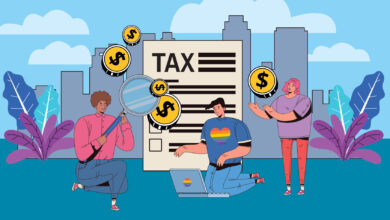
Navigating the LGBTQ Economy
The community’s financial clout is growing. Are you prepared?
The word “equality” is used often in reference to the LGBTQ community. For years, the fight for equality has been fierce, and those efforts have finally started to pay off.
On one hand, mainstream acceptance of LGBTQ individuals is continuing to spread. On the other hand, there is still such a long way to go—and financial and retirement planning is one area where the LGBTQ community may be falling behind. But it doesn’t have to be that way.
In early 2018, Experian conducted a survey of attitudes, challenges, and opportunities as they relate to LGBTQ finances. The survey found that more than 40 percent of respondents said they struggle to maintain adequate savings and that, on average, only 11 percent of their monthly income goes toward savings or investment.
On the flip side, the broader LGBTQ economy has been gaining momentum when it comes to spending power, jobs, and its overall contribution to society.
In 2017 alone, LGBTQ consumer buying power was estimated to be more than $917 billion. According to the National Gay and Lesbian Chamber of Commerce, the average annual revenue of LGBTQ-certified businesses was just under $2.5 million, and their combined contribution to the economy exceeded $1.7 trillion.
As the number of LGBTQ, gender-fluid, and allied individuals grows, it is likely to create a much greater demand for inclusivity, as well as a strong preference for doing business with companies that are known to be friendly to the community.
With changing laws throughout the country, combined with changing attitudes, it is anticipated that those in the LGBTQ community will be able to live more authentic lives going forward, which in turn will allow the community to grow even more. And in many ways, this could be a good thing for the finances of LGBTQ people.
A recent study conducted by Community Marketing Insights (CMI) and T. Rowe Price showed three key themes with regard to the LGBTQ community and investment behaviors:
• Self-reliance of LGBTQ Investors With a median age of 51, participants in the study have lived most of their lives during an era when marriage equality and same-sex benefits were not universal. The mindset for the majority of those surveyed was to look out for themselves financially. Because of that, roughly 80 percent were invested in assets that could provide for their longer-term needs. In fact, based on figures from the T. Rowe Price survey, earning money for retirement is the primary objective for self-reliant LGBTQ investors.
• Openness to Guidance In order to help pursue their financial goals, more than half of the survey participants noted that they were open to guidance from experts—and almost as many stated that they currently work with an advisor.
• A Feeling of Being Underserved While many of the LGBTQ investors in the survey were ready, willing, and able to move forward with a financial plan, most said they would prefer to work with an advisor and/or a firm that is supportive of the LGBTQ community. However, fewer than 10 percent of the survey participants could identify any financial company that was known for being particularly friendly to the community.
So finding the right advisor would likely improve the LGBTQ economy, both from individuals’ perspectives as well as for the community overall.
Most LGBTQ adults came of age at a time when their legal rights, and cultural acceptance as a whole, was filled with uncertainty and instability. The good news is that many are working to turn that around.
Given the historical changes in marriage laws over the last few years, financial planning for same-sex couples has evolved significantly. But in many ways, we are still just scratching the surface. So it is important not to just assume that everything will automatically fall into place.
For example, just because marriage equality is the law of the land, financial planning is not the same for the LGBTQ and non-LGBTQ communities—starting with the way individuals think about money.
With that in mind, working with a professional who is experienced in financial matters, as well as knowledgeable in matters that impact the LGBTQ community, can be an ideal way to ensure that your financial future is in good hands.
This article appears in the November 2018 edition of OutSmart magazine.










